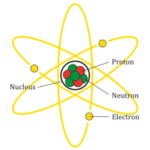Chemistry and Environmental Protection Technology: Safeguarding Our Planet
Welcome to our website dedicated to the fusion of chemistry and environmental protection technology. The collaboration between these two fields is essential for safeguarding our planet and addressing the environmental challenges we face today. Join us as we explore the intersection of chemistry and environmental protection technology, uncovering innovative applications and advancements that are shaping the future of environmental conservation.

- Pollution Control and Remediation: Chemistry plays a critical role in pollution control and remediation efforts. Chemists develop technologies to monitor and reduce various forms of pollution, including air pollution, water pollution, and soil contamination. These technologies aim to minimize the impact on ecosystems and human health, restoring the balance of our natural environment.
- Sustainable Chemistry: Chemistry drives the development of sustainable practices and materials. Chemists work on creating environmentally friendly alternatives to traditional chemical processes and products. This includes designing greener solvents, reducing waste generation, and promoting the use of renewable resources. Sustainable chemistry aims to minimize the environmental footprint of chemical manufacturing and ensure the long-term sustainability of our planet.
- Environmental Monitoring and Analysis: Chemistry contributes to environmental monitoring and analysis. Chemists develop analytical methods and instruments to detect and measure pollutants in various environmental matrices. These tools provide valuable data for assessing environmental quality, identifying sources of pollution, and guiding effective mitigation strategies.
- Green Technologies: Chemistry plays a pivotal role in the development of green technologies. Chemists work on innovations such as renewable energy systems, energy-efficient processes, and green materials. These technologies aim to reduce carbon emissions, conserve resources, and promote a more sustainable and circular economy.
- Waste Management and Recycling: Chemistry is instrumental in waste management and recycling practices. Chemists develop technologies for waste treatment, recycling, and upcycling of materials. These technologies aim to minimize waste generation, maximize resource recovery, and reduce the reliance on landfilling and incineration.
- Environmental Policy and Regulation: Chemistry provides a scientific foundation for environmental policy and regulation. Chemists conduct research and provide expertise to inform policy decisions related to environmental protection, pollution prevention, and sustainable development. Their work ensures that environmental policies are based on sound scientific knowledge and promote effective conservation measures.
- Environmental Education and Outreach: Chemistry plays a vital role in environmental education and public awareness. Chemists contribute to educational programs, outreach initiatives, and public campaigns to raise awareness about environmental issues and promote sustainable practices. By fostering environmental literacy, chemistry helps empower individuals and communities to take action for a greener future.
At our website, we explore the dynamic fusion of chemistry and environmental protection technology, uncovering innovative applications and advancements that are driving environmental conservation. Join us as we delve into pollution control and remediation, sustainable chemistry, environmental monitoring and analysis, green technologies, waste management and recycling, environmental policy and regulation, and environmental education and outreach. Welcome to a place where chemistry and environmental protection technology converge to safeguard our planet for future generations.

